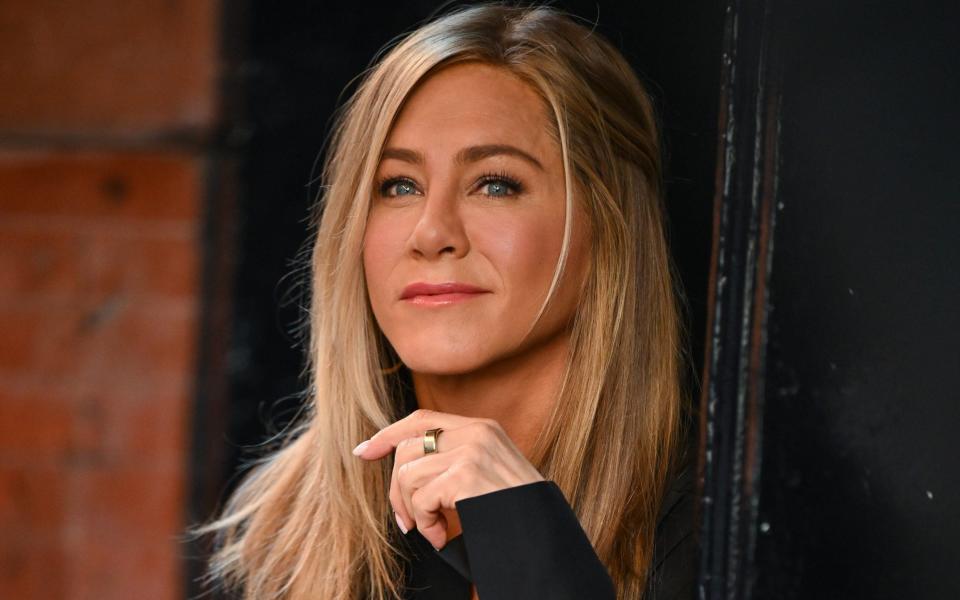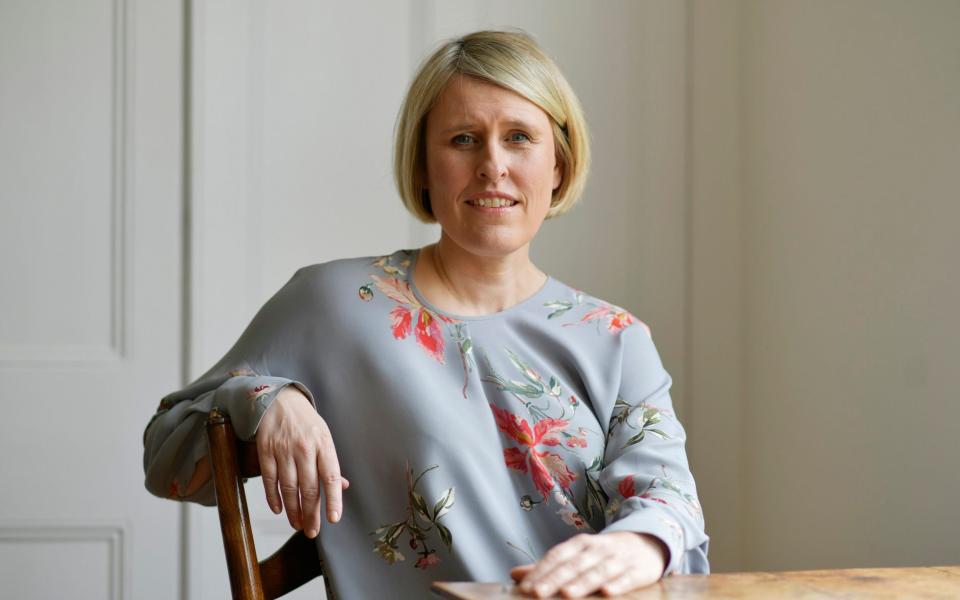Thank you, Jennifer Aniston, for telling the truth about IVF

Thank you Jennifer Aniston. Thank you for being brave. For the first time ever – and after years of speculation about the status of your womb – you have ‘come out’ about your struggle to conceive and your years of IVF.
This week, in a cover story for Allure, a US-based magazine, Aniston declared she no longer had anything to hide. “The ship has sailed”, she revealed. In saying so, Aniston finally terminated the perennial questions about whether she’d chosen her career over motherhood. Turns out it was less a case of “wasn’t ready to” and more a case of “couldn’t” have a baby: what she describes as the “challenging road” of “baby-making” including unsuccessful IVF.
It’s a road I know well because I’ve walked it myself. When I was 34, my partner and I started trying for a family. Until then I’d done what women of my generation were told to do. I went to university. I spent my 20s climbing the career ladder, eventually running a London theatre. I thought motherhood came later. But after a year of having sex-to-schedule, nothing had happened. We went to our first fertility clinic. It was the start of a decade-long journey, which involved 11 rounds of unsuccessful IVF, multiple miscarriages and a life-threatening ectopic pregnancy.
For many years, I led a secret life. Publicly I had a successful career; privately I was on a desperate mission to become a mother. I would lie on the operating table having my eggs collected under anaesthetic first thing in the morning and be back in the office before lunch. I even miscarried my baby in a public toilet and then continued on as if nothing had happened.
So I fully understand why Aniston stayed silent for so long. Infertility can be a stigma. Personally, I felt ashamed to admit that after women had fought for so long to be more than wives and mothers, my job wasn’t enough. I feared I might never be happy if I didn’t procreate. I felt like a failure because I couldn’t.
Of course, for Aniston, there’s the added pressure of celebrity, where every personal event is in the public eye… “I feel that there’s so little that I get to keep for myself,” she said this week.

Aniston has hinted at her situation over the years. In 2016, she addressed the obsession about whether her slightly-rounded stomach was to do with biscuits or a baby. For the record, she said, she wasn’t pregnant, she was just fed up. But, even at the time, something about that piece concerned me. too. Aniston was then in her mid-40s. Her words: “Yes, I may become a mother… and if I ever do I’ll be the first to let everyone know,” were slightly misleading.
We are bombarded with stories of celebrities getting pregnant in their late 40s, even 50s. But important details are often withheld. These women rarely mention how hard it can be to get pregnant post-35 years old; or how many IVF attempts they went through before they did. Even less discussed is whether they had to procure the services of an egg or sperm donor, or the real reasons they ended up using a surrogate. Crucially, they never talk about how much it all costs.
Now with Aniston’s admission that she “was throwing everything at it” and it still didn’t work, she has said something really important for women and the world. Money and IVF can’t guarantee you a baby, and more than that she’s also highlighted the emotional pain.
Like me, Aniston sadly did not go on to have a child. Nine years ago, I first ‘came out’ about my infertility in a magazine. I wanted the world to know that infertility is as much an illness of the mind as it is of the body; that IVF is a miracle science but it doesn’t work every time for everyone; and that the next generation needs better fertility education.
Thankfully, the world is changing. The public conversation about fertility has shifted enormously – from Chrissy Teigen and John Legend (who shared emotional photos after her miscarriage in 2020) to the Duchess of Sussex talking of her “unbearable grief” of experiencing a miscarriage in the same year. Now, this week, Aniston has turned the volume up another notch.
But please don’t think either of us are looking for pity. Aniston says that going through it is what has made her the person she’s “meant to be”. I feel that too. Without my infertility, I wouldn’t have become a writer. Nor would I have swum the English Channel, run the London Marathon and climbed Mount Everest. But it takes courage to say you “failed” to become the mum you wanted to be, and it takes hard work to become something else in a world which still largely wants women to be mothers. So thank you, Jennifer Aniston. For your solidarity.
Jessica Hepburn is the author of The Pursuit of Motherhood and 21 Miles, both available from Telegraph Books
If you need advice or information on IVF, contact The Fertility Foundation or The Fertility Network UK; for advice and information on miscarriage, contact The Miscarriage Association

